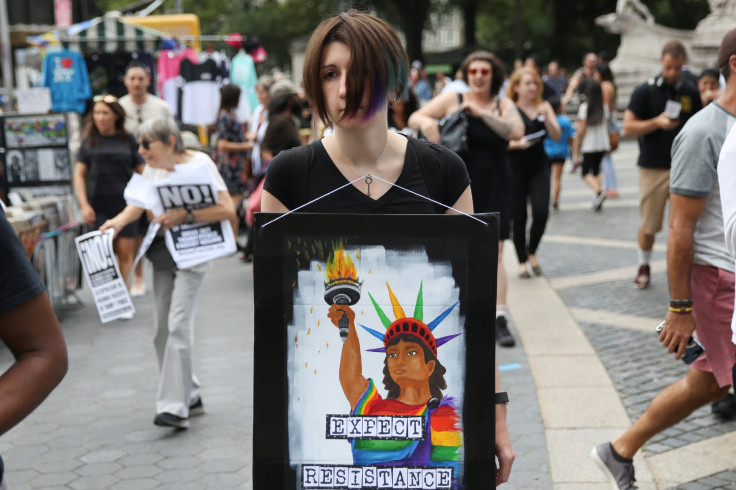Grandparents, Cousins Not “Close” Family Under New Visa Criteria

When the Supreme Court partially restored President Donald Trump's executive order banning travelers from six Muslim countries Monday, it excluded the criterion to prove a credible claim of a bona fide relationship with a person or entity in the United States.
After the ruling, Toronto-based immigration lawyer Paul VanderVennen was quoted by the CBC News as saying there were a lot of grey areas in the exemption categories laid out by the apex court, and a close family member was not defined. "You can presume maybe a brother, sister, father, mother. What about a cousin, what about an aunt, an uncle? It's all subject to interpretation. Nothing is clearly spelled out," he said.
Read:Trump's Travel Ban Could Affect Biotech And Pharma Trends In The US
Before the ruling takes effect Thursday, the State Department late Wednesday listed out the relatives that can be considered “close” family for visa applicants from the six Muslim nations — Syria, Sudan, Somalia, Libya, Iran and Yemen. Under the new criteria, the new applicants must prove a relationship with a parent, spouse, child, adult son or daughter, son-in-law, daughter-in-law or sibling, already living in the U.S., to be eligible for the visa.
Grandparents, grandchildren, aunts, uncles, nieces, nephews, cousins, brothers-in-law and sisters-in-law, fiances or other extended family members will not be considered “close” relationships, according to the guidelines that were issued in a cable sent to all the U.S. embassies and consulates late Wednesday, AP reported.
Critics said they would be closely watching the implementation of the guidelines. "Initial reports suggest that the government may try to unilaterally expand the scope of the ban — for example, by arbitrarily refusing to treat certain categories of familial relationships as 'bona fide.' These reports are deeply concerning. We are watching for official word," said Omar Jadwat of the ACLU, the LA Times reported.
Mark Doss, the supervising attorney with International Refugee Assistance Project, a human rights body for refugees and displaced persons, which is one of the plaintiffs in the travel ban case, was quoted by CBC as saying, the rights body would legally take on the government if it breaches the laid out provisions. “If the government overreaches and is trying to deny our clients or other travellers from coming to the United States and we believe they have a bonafide connection, we'll absolutely pursue that in court,” he said.
Read: How Trump's Travel Ban Would Affect Foreign Students, And America
As far as business or professional links are concerned, the State Department said a legitimate relationship must be "formal, documented and formed in the ordinary course rather than for the purpose of evading the ban." Journalists, students, workers or lecturers who have valid invitations or employment contracts in the U.S. would be exempted from the ban. The exemption does not apply to those who seek a relationship with an American business or educational institution purely for the purpose of avoiding the rules, the cable said.
Under the new rules, would-be immigrants from the six countries who won a coveted visa in the government's diversity lottery — a program that randomly awards 50,000 green cards annually to people from countries with low rates of immigration to the U.S. — will also have to prove they have a "bona fide relationship" within the U.S. or are eligible for another waiver. Else they will face a ban for at least 90 days, AP reported.
© Copyright IBTimes 2024. All rights reserved.





















